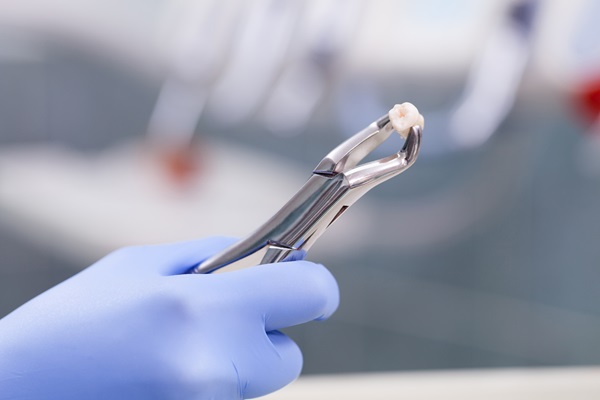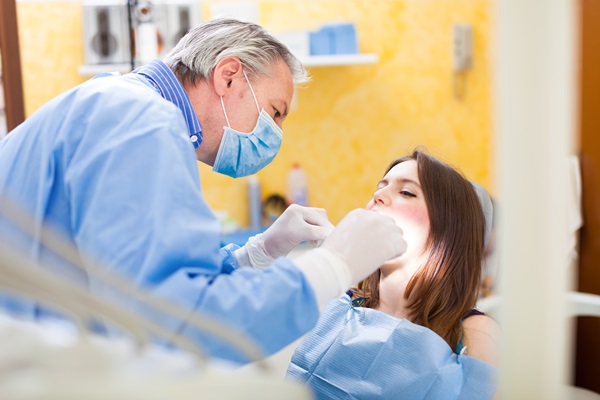3 Common Reasons to See an Oral Surgeon

An oral surgeon performs important procedures, both cosmetic and restorative. Although the idea of surgery for many people is still unpleasant, its effectiveness is undeniable. With recent advancements in dental technologies and techniques, oral surgeries are far less complex and invasive than before.
3 Reasons to see an oral surgeon
The following are some of the most common reasons why a patient might need to see an oral surgeon:
1. Tooth extractions
Not all dental extractions are simple. Some extraction processes are easy because the tooth is already loose and ready to be extracted by the dentist. Other times, extracting a tooth may require more invasive oral surgery. In this case, an oral surgeon will need to perform a complicated procedure.
Usually, dental professionals will want to save natural teeth as much as possible. However, when dire situations arise, prompt tooth removal may be necessary. Some cases may include severe pain from tooth impaction, misaligned teeth, bleeding gums, hard-to-reach teeth, severe decay, or cavities below the gumline. All these cases require a visit to an oral surgeon to prevent the situation from worsening.
2. Dental implant placement
Dental implants have quickly become a popular choice for replacing lost teeth. The process involves placing titanium posts into the jawbone to replace the lost tooth root. An abutment will be added — this is the piece the dental crown will rest on. The crown, with the support of the dental implant, functions and looks like the other natural teeth. Generally, the dental implant process is simple and after the recovery process, patients can return to their usual routine and consume regular foods.
3. Corrective jaw surgery
Another common reason to see an oral surgeon is corrective jaw surgery, also known as orthognathic reconstructive surgery. This procedure is performed in order to treat jaw irregularities to improve the patient’s ability to chew, breathe, and speak properly. In fact, jaw surgery usually involves realignment and reconstruction of the jaw to improve functionality.
Corrective jaw surgery is also required to correct dysfunction and bite issues resulting from facial trauma, accidents, or even congenital disabilities. Only an oral surgeon can handle this surgery because it can be extensive and sometimes complicated. After the procedure, the patient will have a correctly aligned lower and upper jaw. Also, the procedure can remarkably improve the appearance and aesthetic appeal of the face. With jaw surgery, patients will no longer experience discomfort with jaw functions and notice better balance.
Getting started
You cannot simply visit the oral surgeon for a procedure. It is advisable to go for a consultation regarding your condition first. Often, it is a type of pain or issues regarding dental functionalities that necessitate the visit. The appointment will allow the oral surgeon to examine your oral cavity and make a diagnosis. Once they know the problem, they can determine the best treatment option, which may involve invasive oral surgery or sometimes a simple but effective solution.
Request an appointment here: https://brighton.drjstearns.com or call Platte Valley Oral Surgery at (303) 997-0223 for an appointment in our Brighton office.
Check out what others are saying about our services on Yelp: Read our Yelp reviews.
Recent Posts
You might have heard the term “wisdom tooth extraction” often. However, you might not know that every type of extraction does not require surgery. Some kinds only require a simple procedure. Keep reading to find out more about what a wisdom tooth extraction from an oral surgeon involves.In many cases, the wisdom teeth can be…
Corrective jaw surgery (also called orthognathic surgery) is performed by an oral surgeon to correct different forms of skeletal and dental issues, including jaw and teeth misalignment. The aim is to improve oral functions such as breathing, speaking, and eating. Although the surgery may improve the appearance of the patient's teeth significantly, corrective jaw surgery…
If you are experiencing symptoms like jaw pain and stiffness, TMJ disorder might be the problem. This disorder can have a significant impact on your physical and mental health. The condition generally worsens without treatment. A TMJ specialist is a trained and experienced professional who offers treatment for TMJ disorders. Continue reading to find out…
Bone grafting is a minor surgical treatment done under local anesthetic to replace depleted bone tissue. The grafting material may be inserted into a tooth socket just after a tooth is removed or at a location where a tooth has been absent for an extended period. Over the next few months, your body will produce…


